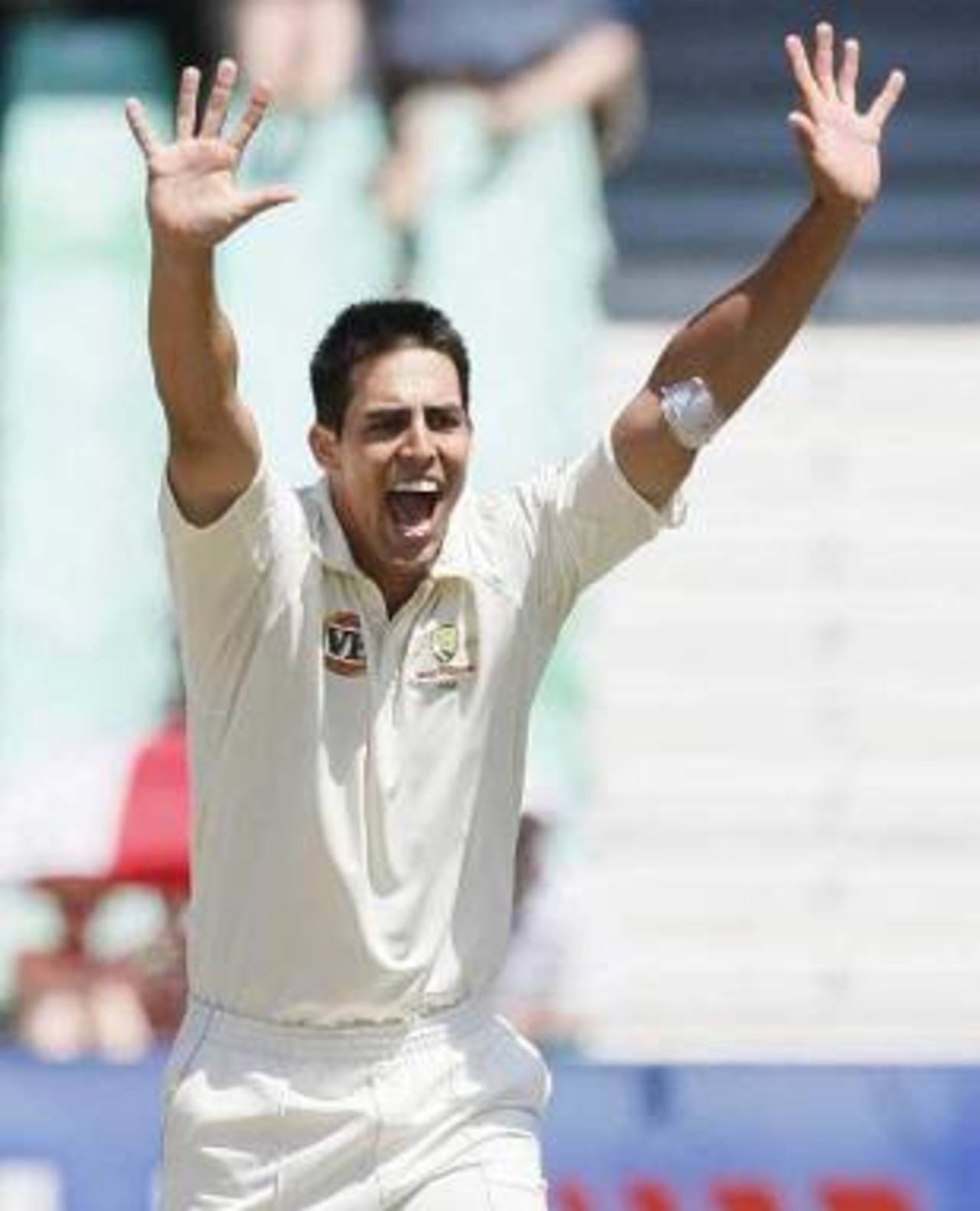Beware the wounded lion
Teams would be well advised to take lessons from Australia on how to recover from a setback
Ian Chappell
15-Mar-2009

Johnson's rise has been a key element in how Australia have bounced back • AFP
If there's one thing Australia understands better than any other team, it's the merit
of thought-provoking self-analysis. When Australia are on a winning streak everything is done to maintain the high standard, and when they lose no stone is left unturned, including a frank appraisal of their performance, to correct mistakes. Contrast that with the recent efforts of England and South Africa.
In 2005, England produced the biggest boil-over since the introduction of automatic
kettles to regain the Ashes and then went on a celebratory binge to mark the
occasion. While England celebrated, Australia cleverly regrouped, and within 15
months the Ashes were back in Ricky Ponting's hands after a spectacular series
whitewash.
In late 2008, South Africa conjured up two stunning come-from-behind wins to steal
the series from a labouring Australian team. Then in the return series, with a few changes in personnel and a more aggressive approach, Ponting's team masterminded
the biggest turnaround since power steering was invented to flatten a South African team
that was still dreaming about the winning hit at the MCG.
Those two performances are a tribute to Ponting's leadership. On a number of
occasions he's displayed a penchant for honest evaluation that has proved to be the
ideal remedy for overcoming problems, whether they be personal or collective. Where Ponting drives his team harder when they are successful, both England and South
Africa have been guilty of resting on their laurels. The lesson for all teams is:
beware of a beaten Australia; they're as dangerous as a wounded lion.
How did the fortunes of both Australia and South Africa change so quickly and
dramatically?
Two things should never be underestimated in the game of cricket: the value of an
infusion of new blood, and a positive state of mind. One quite often leads to the
other.
A comparison of the performances of a pair of players on each team against two from the other is the best way to explain the dramatic turnaround: Phil Hughes with Neil McKenzie, and Mitchell Johnson compared to Morne Morkel.
When Australia are on a winning streak everything is done to maintain the high standard, and when they lose no stone is left unturned, including a frank appraisal of their performance, to correct mistakes
McKenzie is the archetypal old-approach opener, one who has seen all the pitfalls and
bats as though one is about to open up right before his eyes. Hughes is a typical
new boy, full of enthusiasm and positive vibes, and he hasn't yet seen a delivery he
didn't fancy. While McKenzie prefers to leave numerous balls to reach the keeper,
Hughes has a lust for runs and adventure at the crease. The latter approach has, by far, the more damaging affect on an opposing bowler's psyche.
Johnson and Morkel both entered the Test arena as young pace bowlers with a lot of
potential and a hint of batting ability. Johnson has improved rapidly in both
aspects of the game, thriving in the spotlight that has shone on him since he was
prematurely thrust into the spearhead role. Morkel on the other hand is still only
threatening to become a lethal Test bowler, and his batting has gone backwards faster
than an Australian Rules boundary umpire. Johnson has become a team leader while Morkel is now wallowing in the anonymity reserved for bench players and laboratory assistants.
In the lead-up to the series, South Africa talked about grandiose plans but lacked
the nerve to adapt to situations as they worsened by the minute. What happened
on the field didn't match their fighting words or the action that was unfolding. Australia on the other hand were revitalised by the enthusiasm of new inductees and
powered by an aggressive approach designed to overcome past faults. When confronted
by an Australian side that launched a concerted attack, the South Africans reacted
like rabbits caught in a spotlight.
South Africa's response to this amazing form reversal has been to make changes,
which is admirable, except that they haven't addressed a major failing. Having
introduced fresh blood, they put in charge a man who is partly responsible for their
current predicament. Jacques Kallis' refusal to react positively when the
Australians challenged his authority as a batsman is part of the reason why South
Africa weren't able to turn the tide when their innings was unravelling.
Ponting may be conservative at times when placing a field or choosing a change
Bowler, but one can never accuse him of not setting the tone with a bat in his hand.
He has also set the bar high for leadership in times of crisis, and any team
wanting to seriously challenge Australia could do worse than follow his example of
hard work and critical self-appraisal.